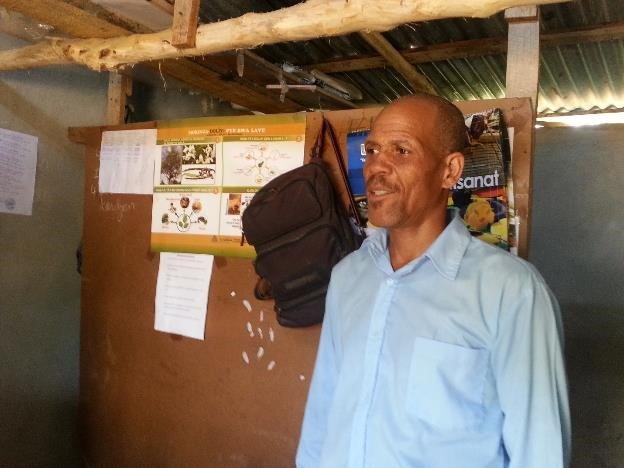Good hygiene makes good sense — particularly in one Haitian community, where 13 children in the Onde Latine School have died of cholera since it broke out in 2011. Kids now wash their hands before lunch as if they’re scrubbing for surgery, cleaning up to their elbows, under their nails and between their fingers. The collective clean-up stems from the USAID-funded, CARE-led Kore Lavi program, a food and nutrition initiative that aims to serve 300,000 of Haiti’s most vulnerable families. Good hygiene — as cooks prepare the meals, and as children eat them — is one, perhaps life-saving, part of the program.
Since it started, no more children have died. Instead, healthier kids are learning more and have begun to imagine a future much brighter than their past. Joseph Arnold, the school principal, attributes this change to two influences: better nutrition and better hygiene.
“Before, by 10 am every morning, kids were complaining of headaches and stomach aches,” said Arnold. “I would have several kids lying on the floor in my office because they were sick. You could see kids with their hair falling out, they were so malnourished. They didn’t have any resistance to diseases, because they had no food. They couldn’t concentrate on learning, because they were so hungry.

Now, you can see that they are physically healthy. And we know that the food they are eating is clean. The caterers who make it use drinkable water, and they keep strict hygiene standards. And we have equipment for kids to wash their hands. They are all doing it the right way before every meal.”
But the kids are not merely clean and well fed: They’ve increased their appetite for learning, too, said Arnold.
“The kids don’t come to class hungry anymore. Now that they get breakfast here, they show up at 6 am, even though we don’t start giving out food until seven. Some of them want us to start having classes on Saturdays; that’s how excited they are about school now. They are learning a lot better, and the teachers say that teaching them is much easier. This community was like a dead zone before. Kids couldn’t come to school and learn because they were too hungry. For the first time in the 32 years we have had this school, we have hope. ”